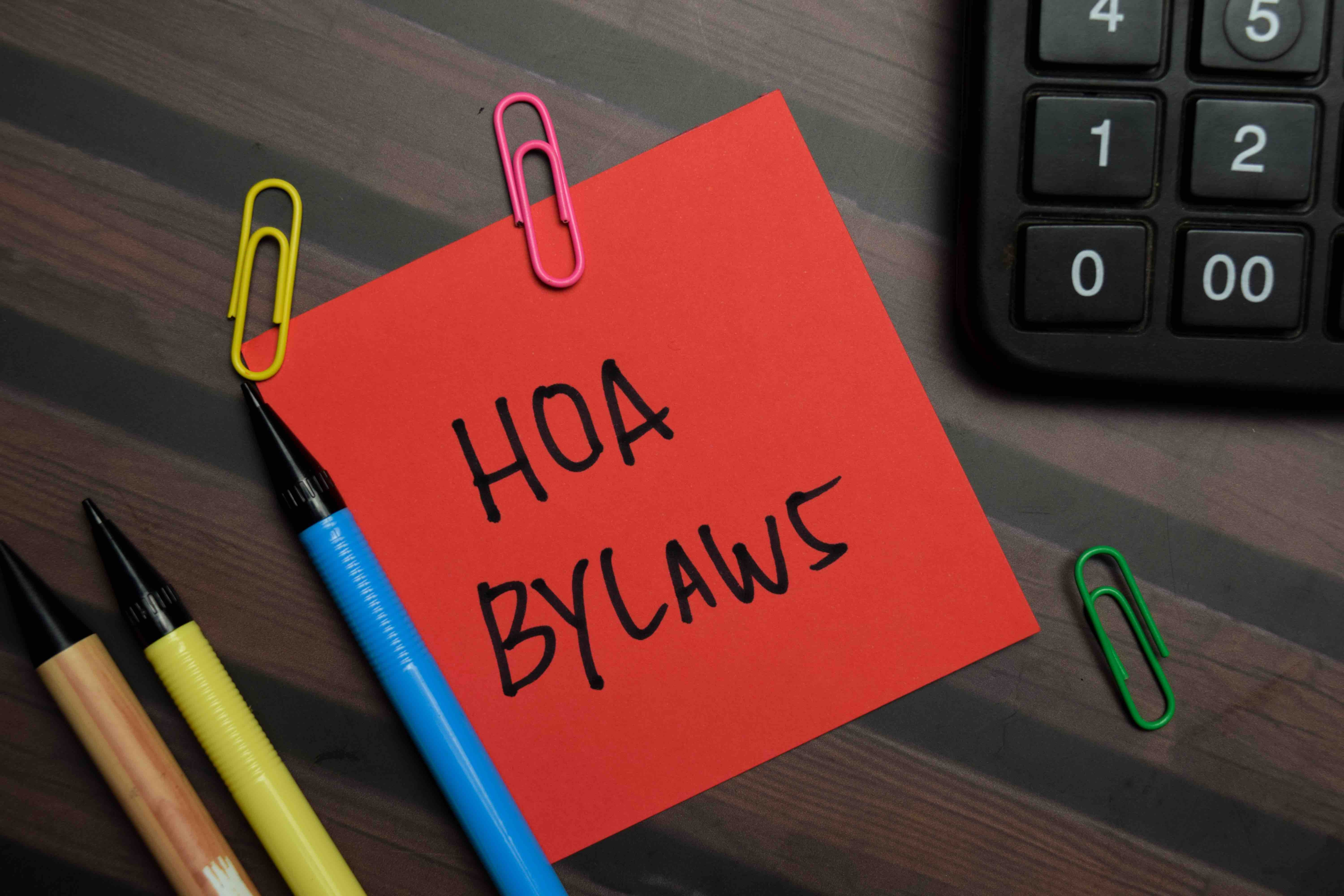
Are you looking to make a positive impact on your community and develop valuable skills along the way? Serving on a homeowners association board might just be the opportunity you’ve been searching for. In this blog post, we’ll guide you through a step-by-step process on how to join a HOA board, discussing key roles, responsibilities, qualifications, and best practices. Let’s embark on this journey to enhance your community and unlock your potential as a dedicated HOA board member.
Key Takeaways
- HOA Board members serve as elected representatives of the community, responsible for managing and enforcing rules.
- Qualifications include residency, property ownership, and adherence to state laws & governing documents.
- Essential skills such as leadership, communication & financial management are required to be successful on the board while best practices focus on transparency & collaboration with fellow members.
Suggested Posts:
HOA President: Understanding the Essential Duties and Responsibilities
3 Access Control Considerations for HOAs
Understanding HOA Bylaws & CC&R Rules & Regulations
What is an HOA Board?
An HOA board, also known as a homeowners association board, is a group of elected homeowners who shoulder the responsibility of managing a community, ensuring compliance with governing documents, and making decisions for the benefit of residents. A competent HOA board is crucial to the success of any homeowners association, as the board members are accountable for preserving common areas, enforcing community rules, and managing the association’s finances.
The process of selecting HOA board members typically involves annual elections, during which community members nominate and vote for their fellow residents to serve on the board. By taking on this significant role, HOA board members contribute to the overall well-being of their community and uphold the values cherished by its residents.
Understanding the HOA Board Structure
The structure of an HOA board usually consists of four key roles:
- President
- Vice-president
- Secretary
- Treasurer
Each of these HOA board positions comes with specific responsibilities, and the individuals who fill them are elected by fellow HOA members to serve the community.
In the following subsections, we will delve deeper into the roles and responsibilities of each board member, providing a comprehensive understanding of their essential functions within the HOA.
President
As the leader of the HOA board, the president is responsible for setting the agenda, overseeing operations, and ensuring compliance with governing documents. This critical role demands a strong understanding of the regulations, bylaws, and inner workings of the association. Additionally, the president must effectively communicate with fellow board members and residents, addressing their concerns and requests while promoting a sense of community.
The president represents the organization at important events, such as the annual meeting, fostering unity and collaboration within the community.
Vice-President
The vice-president’s role includes:
- Assisting the president in their duties
- Assuming the president’s responsibilities in their absence
- Leading committees and coordinating with committee members (depending on the association)
To excel in this role, the vice-president must possess strong teamwork, communication, and transparency skills, ensuring that their actions align with the best interests of the community.
Secretary
The secretary acts as the guardian of the HOA board’s documentation and communication. Their responsibilities include:
- Creating the board meeting agenda
- Recording meeting minutes
- Ensuring quorum
- Sending notices for board meetings
- Maintaining important documents such as the Declaration of Master Deed, Articles of Incorporation, and the association’s rules and regulations.
To be an effective secretary, strong organizational and communication skills are essential, along with the ability to manage documentation accurately and efficiently.
Treasurer
The treasurer oversees the financial matters of the HOA, including budgeting, assessments, and financial reporting. They are responsible for many tasks related to finance. These include the creation of the annual budget, regulating income and expenses, collecting dues, paying suppliers and compiling financial statements. Hosting budget meetings and fostering collaboration among board members and the community are crucial aspects of the treasurer’s role.
By ensuring accurate financial management, the treasurer contributes to the financial stability and long-term success of the community.
Eligibility Criteria for HOA Board Membership

The criteria for serving on an HOA board may vary based on the association’s governing documents and state laws. Generally, eligible candidates must be residents of the community and own property within it. Some associations may also require specific HOA board member qualifications outlined in their governing documents, such as knowledge of HOA policies or familiarity with the condo association approval process.
For example, in Florida, to serve on an HOA board, one must be a member of the association, own a home or condo in the association, and be at least 18 years old. Additionally, state laws may impose restrictions on co-owners or spouses serving on the board simultaneously or on individuals with outstanding fees or fines owed to the association.
It is crucial to understand and adhere to these guidelines when considering HOA board membership.
Preparing for HOA Board Elections
As you prepare for HOA board elections, it’s essential to understand the nomination process and the specific requirements your association might have in place. In most cases, homeowners can nominate themselves for a board position during annual meetings. To increase your chances of success, attend as many meetings as possible, familiarize yourself with community rules and regulations, and become an active participant in the community.
During the election process, it’s crucial to network with your neighbors, share your vision for the community, and demonstrate your qualifications and commitment to the role. By engaging with fellow residents and showcasing your passion for the community’s well-being, you will gain their trust and support, increasing your chances of being elected to the HOA board.
Running for an HOA Board Position
Once you’ve decided to run for an HOA board position, it’s time to start campaigning. Here are some steps to follow.
- Reach out to your neighbors and fellow community members to discuss your vision and goals for the community.
- Be prepared to answer questions about your qualifications, experience, and how you plan to address specific issues within the community.
- Demonstrating your knowledge, dedication, and ability to make informed decisions can help you gain the trust and support of your neighbors.
To enhance your chances of success, consider sending out a short solicitation letter to community members, outlining the reasons you’re running for the board and the benefits you believe your service will bring to the community. By clearly communicating your intentions and goals, you’ll increase your chances of being elected and making a positive impact on the community.
Essential Skills for HOA Board Members
Serving on an HOA board requires a diverse skill set, including:
- Leadership
- Communication
- Organization
- Financial management
- Conflict resolution
These skills are crucial for managing the various aspects of the community, such as maintaining common areas, enforcing rules, and overseeing the association’s finances. In addition, board members must be able to work collaboratively with fellow board members, the HOA management company, and residents to make informed decisions that benefit the entire community.
To develop these essential skills, consider participating in training programs, workshops, or webinars designed specifically for HOA board members. Continuous learning and improvement will not only enhance your effectiveness as a board member, but also contribute to the overall success of your community.
Serving on the HOA Board: Duties and Responsibilities

As an HOA board member, you’ll be responsible for fulfilling various HOA board member duties and responsibilities that contribute to the well-being of your community. Some of these tasks include:
- Maintaining common areas
- Enforcing community rules
- Managing the association’s finances
- Resolving conflicts
Balancing personal interests with the needs of the community is a crucial aspect of your role, as your decisions should prioritize the best interests of the entire community.
To excel in your role, it’s essential to effectively communicate and collaborate with fellow board members, the HOA management company, and residents. Openness, transparency, and a commitment to the community’s best interests will help you navigate the challenges of serving on the board while making a positive impact on the community.
Best Practices for HOA Board Members
To ensure the success of your community and your time on the board, it’s important to adhere to best practices for HOA board members. These include:
- Transparency
- Fairness
- Collaboration
- Continuous learning
By being open and honest in your decision-making and communication, you’ll cultivate trust and credibility among your fellow community members.
Another crucial aspect of being a successful board member is the ability to manage conflicts and find solutions that benefit all parties involved. This requires effective communication, a willingness to compromise, and a focus on the community’s best interests. By embracing these best practices, you’ll not only enhance your effectiveness as a board member, but also contribute to the overall success and well-being of your community.
Benefits of Joining an HOA Board

Serving on an HOA board comes with numerous benefits, both personally and for your community. As a board member, you’ll have the opportunity to develop valuable skills such as:
- Leadership
- Communication
- Financial management
- Conflict resolution
These skills can be applied in various aspects of your personal and professional life, contributing to your overall growth and development.
In addition to personal growth, joining an HOA board allows you to:
- Make a positive impact on your community
- Participate in decision-making processes
- Implement positive changes
- Address the needs and concerns of your neighbors
By doing so, you’ll help create a thriving, harmonious community that everyone can enjoy. The satisfaction of making a difference in the lives of others is a reward that’s well worth the commitment.
Common Challenges and How to Overcome Them
HOA board members often face challenges such as balancing personal interests with community needs, managing conflicts, and navigating legal and financial complexities. Overcoming these challenges requires effective communication, collaboration, and a commitment to the community’s best interests. A good HOA board member is essential for ensuring these qualities are present in the board’s actions, and attending HOA meetings is a crucial part of this process.
To tackle these challenges, be proactive in seeking out resources and expert advice to help you navigate complex situations. Engage in open, transparent communication with your fellow board members and residents to address concerns and avoid potential conflicts.
By staying committed to the well-being of your community and prioritizing the needs of your neighbors, you’ll overcome these challenges and contribute to a successful and harmonious community.
Summary
Joining an HOA board is a rewarding opportunity that allows you to make a positive impact on your community while developing valuable skills and connections. By understanding the roles and responsibilities of board members, meeting eligibility criteria, and participating in elections, you can embark on a journey to enhance your community and unlock your potential as a dedicated HOA board member. Embrace the challenges, learn from your experiences, and celebrate the successes along the way, knowing that your efforts are making a difference in the lives of your neighbors and the community as a whole.
Frequently Asked Questions
Do you have to join the local HOA?
It is not mandatory to join a local HOA, as there may be voluntary HOAs which are optional. However, if the HOA is mandatory, then joining it is obligatory in order to access the shared amenities and live in the community.
How many board members are required for an HOA in Florida?
In Florida, the minimum number of board members required for a HOA is three, as stated in the association’s articles of incorporation or bylaws.
Additional board member provisions are determined by the bylaws.
What is the main purpose of an HOA board?
The main purpose of an HOA board is to manage and maintain the community, ensure compliance with governing documents, and make decisions that benefit all residents.
Upgrade Your Building Security
Get in touch with a Swiftlane specialist for more information on the best access control and video intercom solution for your building.




